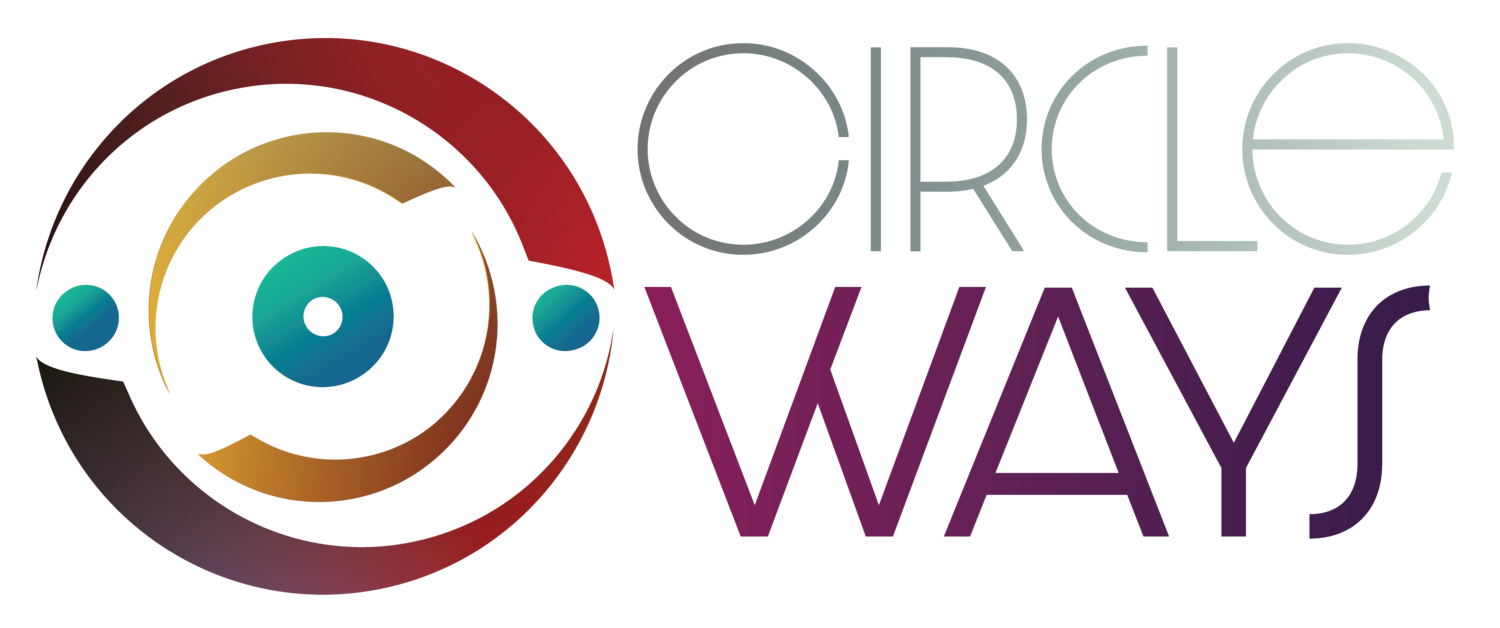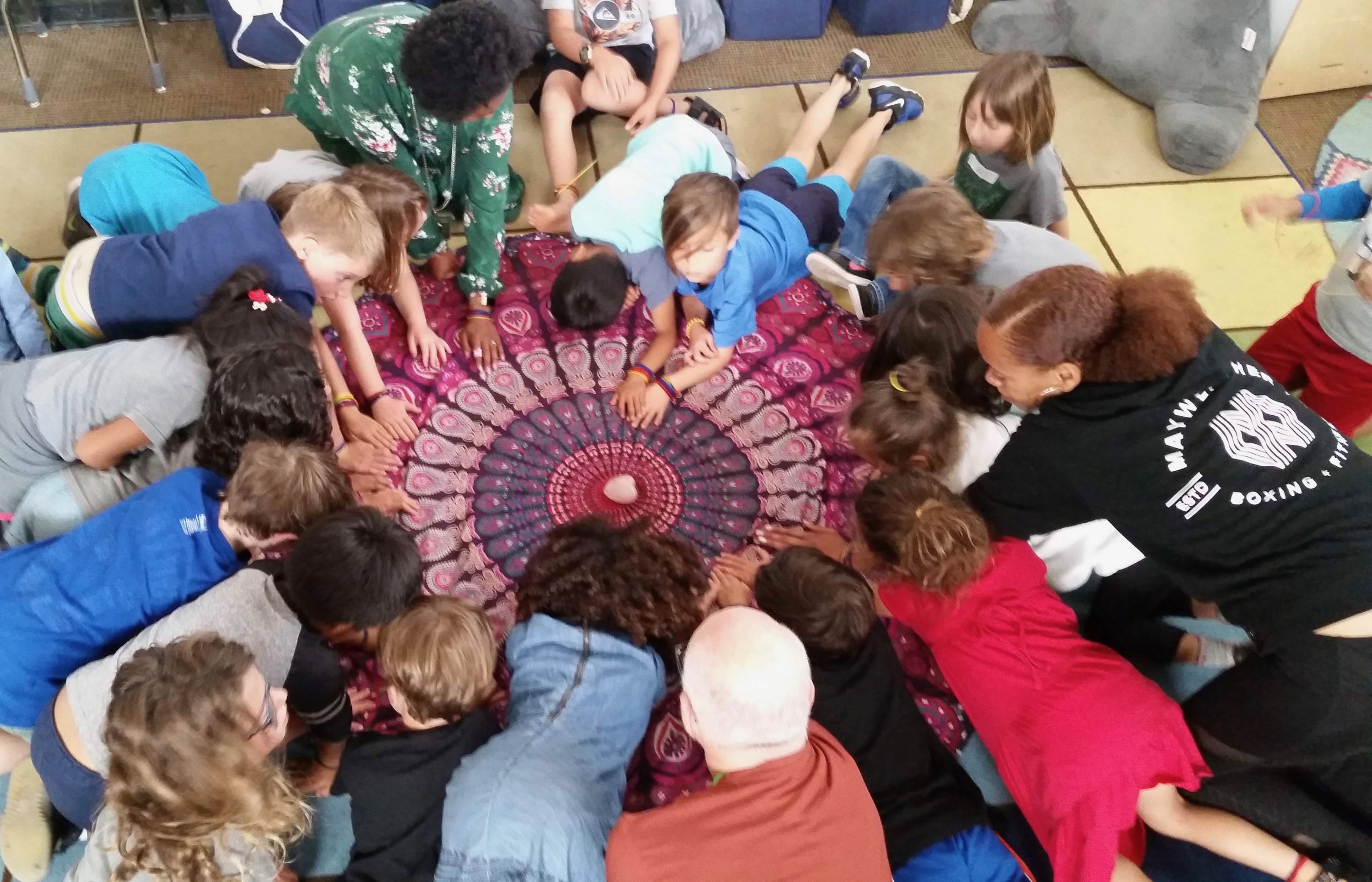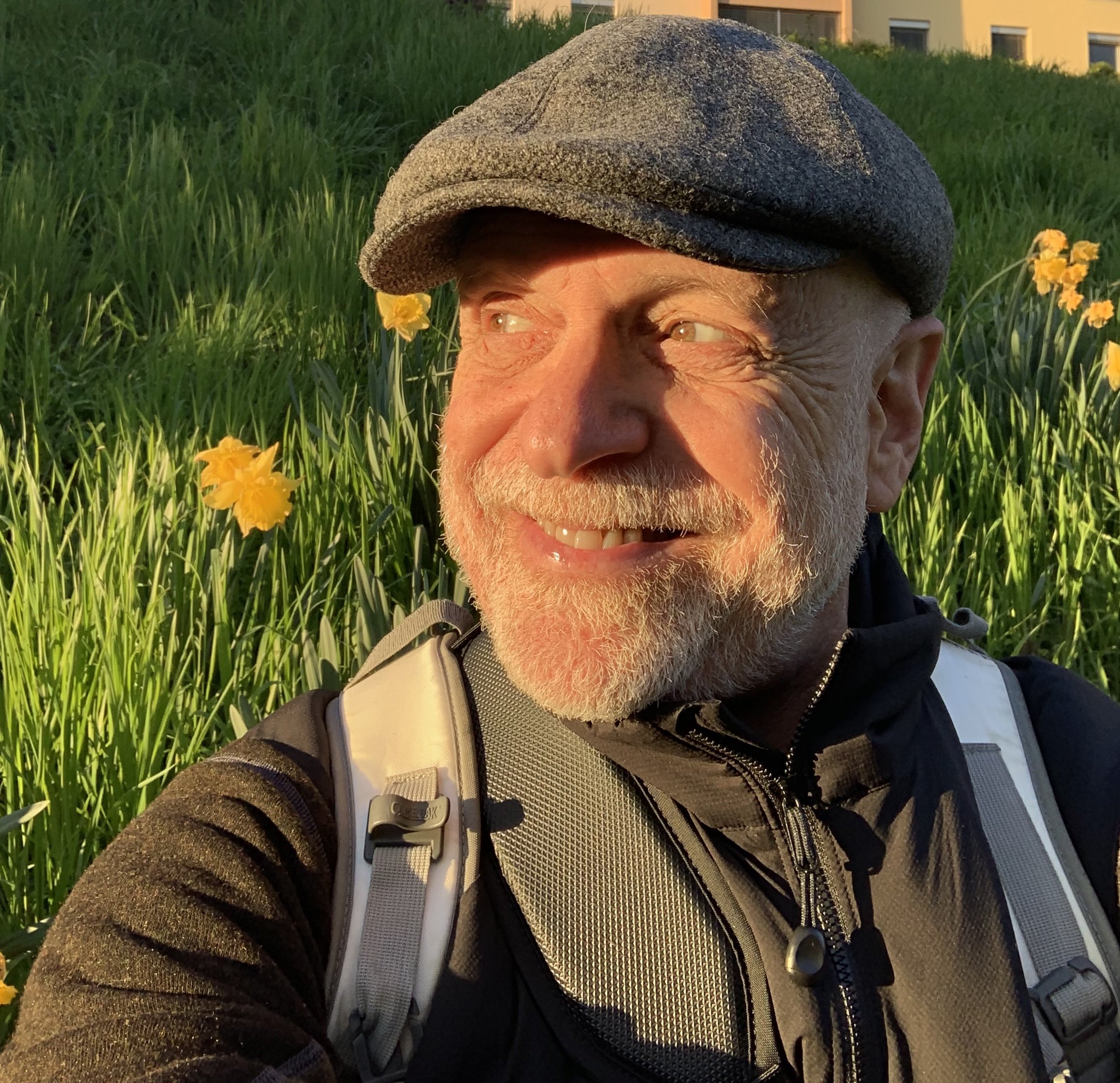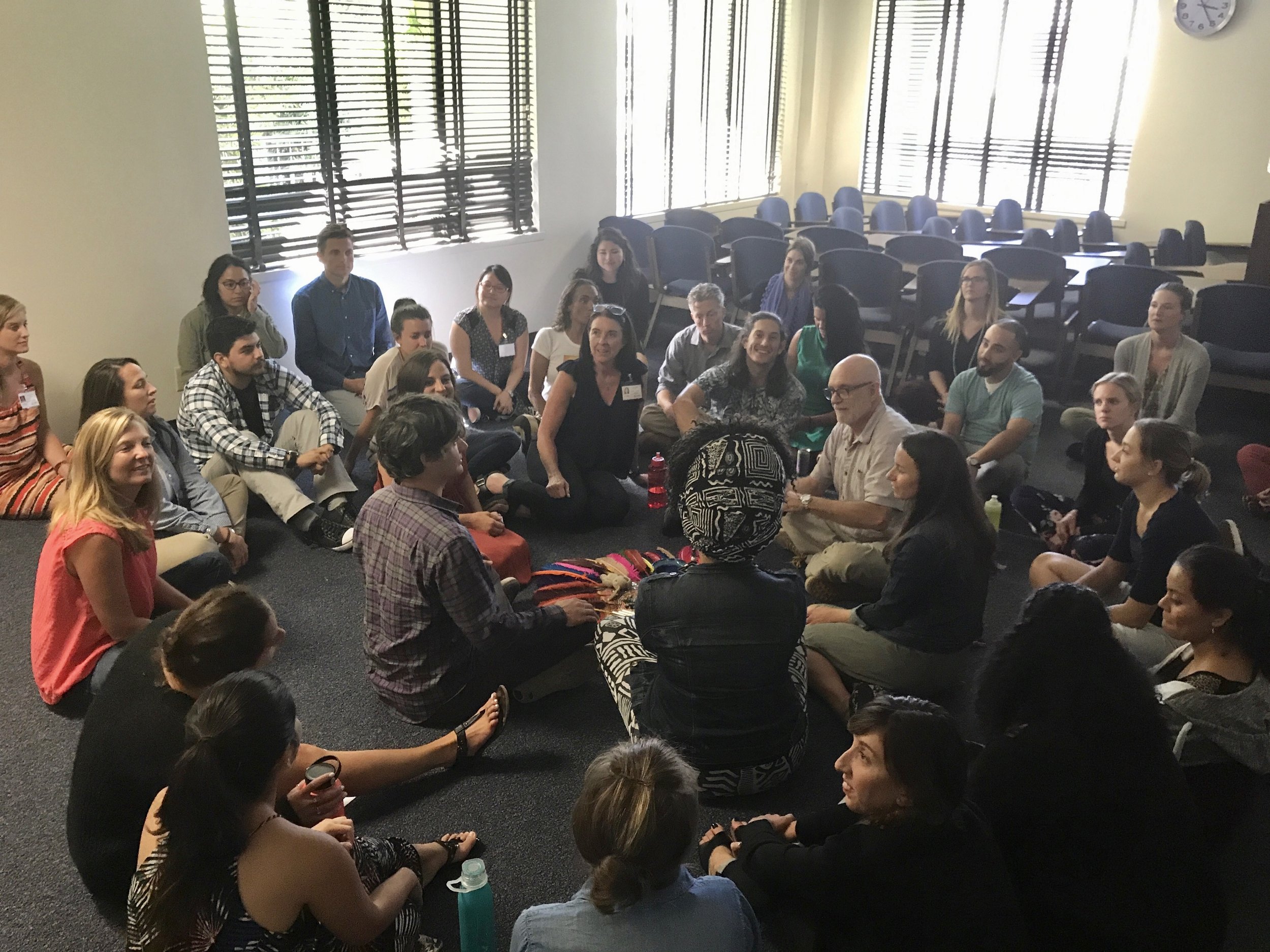Our impact
Circle Ways has transformed the educational and interpersonal landscape, touching thousands of lives across decades of work in the United States, the UK, Vietnam and beyond.
Explore. Discover. Circle In.
With over 100 schools serving TK-college, over 40K educators trained internationally, and over 40 years of mentoring schools, organizations, and families in Circle Ways: our legacy continues to ripple outward.
We teach people how to transform systems from the inside out, by witnessing person-to-person and heart to heart in the powerful practices known as Circle Ways.

Achievements & awards
-
Sitting in circles to tell our cultural and personal stories is ‘the oldest new thing around’.
Beginning in 1975, our lineage of circle practice developed through the Ojai Foundation.
-
School-based council practice originated in 1980 at The Crossroads School in Santa Monica where it continues today as a mainstay of their Human Development Program.
-
Our first LAUSD public school program launched at Palms Middle School in 1992. The Palms project won the 1996 “Education Award” from the Los Angeles Human Relations Committee, the first time this award was given to an institution.
-
California State Department of Education auditors identified the Project as an example of a successful violence reduction program.
-
Former President Clinton’s “Initiative on Race” featured the project on its “promising practices” website.
-
At the request of the American Jewish Committee, in 1999 the Project hosted visits by fifteen representatives of emerging democracies in Eastern Europe.
-
WestEd, a non-profit educational research foundation, conducting research at Palms Middle School, concluded that the project contributed to “increased communication skills across grade levels,” and that “exposure to council predicted increased GPA for all grade levels”.
-
From 2006 - 2013, Council in Schools was housed in the LAUSD Office of Curriculum, Instruction, and School Support (OCISS). CIS was the only initiative in LAUSD to address the simultaneous development of academic and social-emotional competencies.
-
From 2001 - 2011, all students studying to become teachers and counselors at the California State University, Los Angeles received training and experienced 16 weeks of Council with peers in their required Human Development course.
-
Circle Ways has proven applications in :
• healthcare (USC-Keck Medical School),
• special education,
• dropout prevention and retention,
• continuation high schools,
• Positive Behavior Support,
• parent education,
• BTSA,
• crisis intervention,
• service learning,
• Restorative Justice,
• project-based learning -
Actively engaging culturally diverse communities in empathy building towards a just, inclusive society.
Changing lives
〰️
Transforming Classrooms
〰️
Fostering Diversity
Changing lives 〰️ Transforming Classrooms 〰️ Fostering Diversity
-
60+ schools
are running sustainable Circle Ways programs in the Los Angeles area alone.

-
Over 40K
teachers and facilitators have been trained in Circle Ways methods.

-
Staff, students, & Caregivers
participate every week, learning from peers, re-establishing a village ethos of mutual responsibility.
-
Global Reach
Programs in Vietnam, the United Kingdom, Europe, and Israel/Palestine.
Browse videos for a snapshot of our work in action: in the classroom, and in the community.
witnessing Circle Ways
Circle Ways founder Joe Provisor on his journey to Circle Ways.
A very large community circle in Ojai, California.
At UCLA Lab School: explorations in embodied circle practice.
Powerful trust and team building, at Park Lane Charter Academy.
RETURN TO THE HEART describes The Ojai Foundation's Council in Schools program. Council is the ancient practice of sitting in circle to share the stories of our lives. It builds community, strengthens relationships, prevents conflict, enhances speaking and listening skills and brings deeper meaning to the lives of the participants. Council in Schools serves over 60 Los Angeles schools including an extensive program within the Los Angeles Unified School District.
A Circle Ways Short
Circle Ways, formerly the Ojai Foundation's Council in Schools Program, brings the practice of council to students, teachers, and administrators. Here is council told through their many perspectives.
A Council in Schools: Case Study
A taste of the range of a Circle Ways experiences; from playfulness and joy, to fostering meaningful connections. At El Rio, California.
The Council Project is “a breakthrough…the kind of model program that can be replicated throughout California.”
US Senator Barbara Boxer
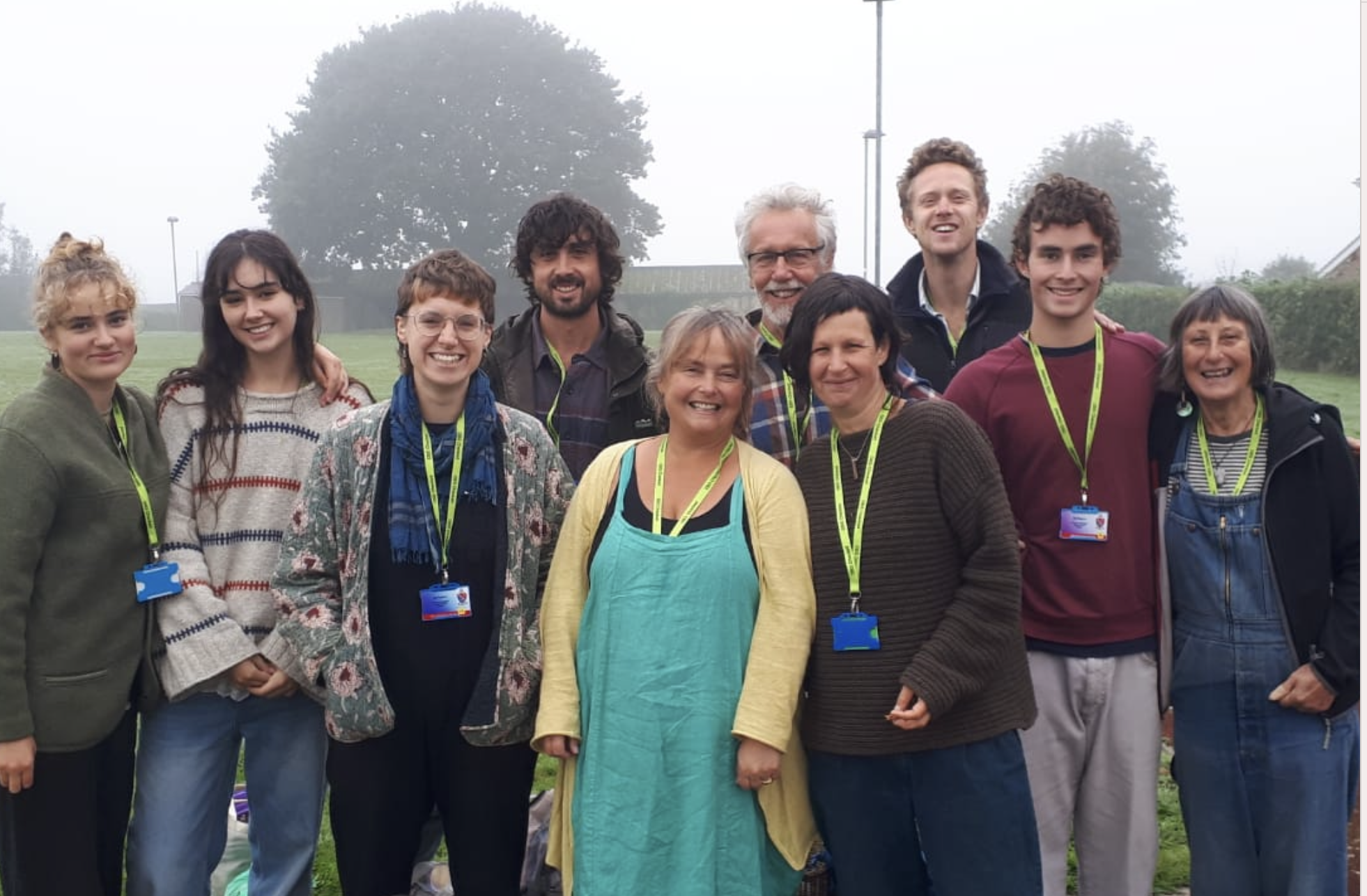
“It has been a privilege to be mentored by Joe particularly at the beginning stages of getting council circles into schools and training facilitators. Joes training, both in person or online is wonderful and his wealth of experience and knowledge invaluable, however more importantly he brings it all in true council style with authenticity and an open heart. I am so grateful to Joe’s wisdom and generosity of spirit, without his encouragement and support Circlewise would not be where we are today. “
circlewise uk
More words from our community…

COUNCIL IN SCHOOLS: THE DATA
** Suggest this links, via a button, to a pdf, that has the data laid out with infographics/graphs.**
Show only a highlight of the pdf to encourage download.
SOURCE: WESTED COUNCIL IN SCHOOLS EVALUATION (11-11-09) PREPARED BY
BARBARA DIETSCH, PHD AND NORAINI ABDULLAH-WELSH, PHD
In a three-year study (2006-2009) based on the California Healthy Kids Survey (CHKS: http://chks.wested.org/) with 15 Los Angeles schools, WestEd confirmed the following data:
-
• 89% of teachers said they plan to sustain the practice in their classrooms.
• 78% said Council made their classroom a better place.
• 98% said Council provided opportunities to speak about issues important to them and to process issues and concerns.
• A mean score of 3.33 indicated that teachers saw increased engagement in content-based discussions.
• A mean score of 3.18 indicated that teachers saw increases in student social-emotional competencies.
-
• 100% supported the implementation of Council and agreed Council-related sessions were an effective use of professional development time.
• A mean score of 3.50 on a scale to measure the effectiveness of Council “suggests that principals felt that Council impacted their students and school climate by improving disciplinary referrals and fights on campus and better social skills (listening, public speaking, and negotiating personal conflicts) among students.”
-
• A mean score of 3.0 (n=1834) to measure the value of Council indicates “positive beliefs about the value and effectiveness of council.”
• 80% said they liked having Council in their classrooms.
• Nearly 75% of students surveyed felt that Council made them feel more connected to peers and adults on the campus, a strong indicator of resilience based on the California Healthy Kids Survey (CHKS).
-
• A mean score of 3.85 indicates strong agreement about the value and effectiveness of Council at the school.
• A mean score of 3.78 for appreciating the opportunity to experience Council with other parents.
• A mean score of 3.09 agreed that through Council parents learned parenting strategies from other parents.
• A mean score of 3.21 agreed that because of Council their children developed more confidence in speaking in front of others.
Research and Studies
2001 WestEd Study for Council at Palms Middle School
2005 WestEd Study for Council at Palms Middle School
2006-7 WestEd first-year study for LAUSD
2007-8 WestEd second-year study for LAUSD
2008-9 Final WestEd study for 15 schools in LAUSD
2018 USC Keck School of Medicine study of the Diabetes Empowerment Council
2020 Newcastle University: Centre of Excellence and Equity in Higher Education, International Network on Gender, Social Justice and Praxis
THESES, DISSERTATIONS, AND ARTICLES IN OUR COUNCIL TRADITION
"Applying Council in a University Human Development Course," Dr. Betsy Perluss (2011)
Introduction of a Dialogue Group in a Contemporary, Conservative Jewish Synagogue, Cheryl Hashman Sheinman (2000)
"Listening from the Heart, Speaking from the Heart": Using Council to Transform the Middle School Classroom (UCLA Master's Thesis), Leah Raphael (2008)
Psychospiritual Group Work: The Impact of a Talking Circle Training Program on Emotional and Spiritual Intelligences (Dissertation), Dr. Micael Gonzalez (2012)
The Impact of Council on Early Adolescents (Dissertation), Dr. Denise Jaimes-Villanueva (2012)
The Way of Council: A Narrative Inquiry Exploring Council as a Spiritual Path (Dissertation), Dr. Leonelda Castillo (2017)
Can Holding a Talking Stick Improve Listening at Work? The Effect of Listening Circles on Employees' Emotions and Cognitions (Hebrew University of Jerusalem), Guy Itzchakov and Avraham N. Kluger
"Supporting New Teachers with Authentic Speaking and Listening," (ASCD article), Julia Mason Wasson (2012)
RELATED STUDIES AND ARTICLES
“InBrief: The Science of Early Childhood Development.” n.d. Center on the Developing Child at Harvard University. Accessed March 9, 2018. https://developingchild.harvard.edu/resources/inbrief-science-of-ecd/.
“Let’s Talk: Restorative Justice Practices.” n.d. Harvard Graduate School of Education. Accessed March 9, 2018. https://www.gse.harvard.edu/news/12/05/lets-talk-restorative-justice-practices.
“Making Peace.” n.d. Harvard Graduate School of Education. Accessed March 9, 2018. https://www.gse.harvard.edu/news/uk/15/12/making-peace.
Stories

Connect With Us
We would love to hear from you! Looking for more details and pricing, have questions about our offerings or the process, need referrals to administrators who have sustained the program...or anything else? Contact us.
Email
info@circleways.org
Phone
(310) 502-7214

